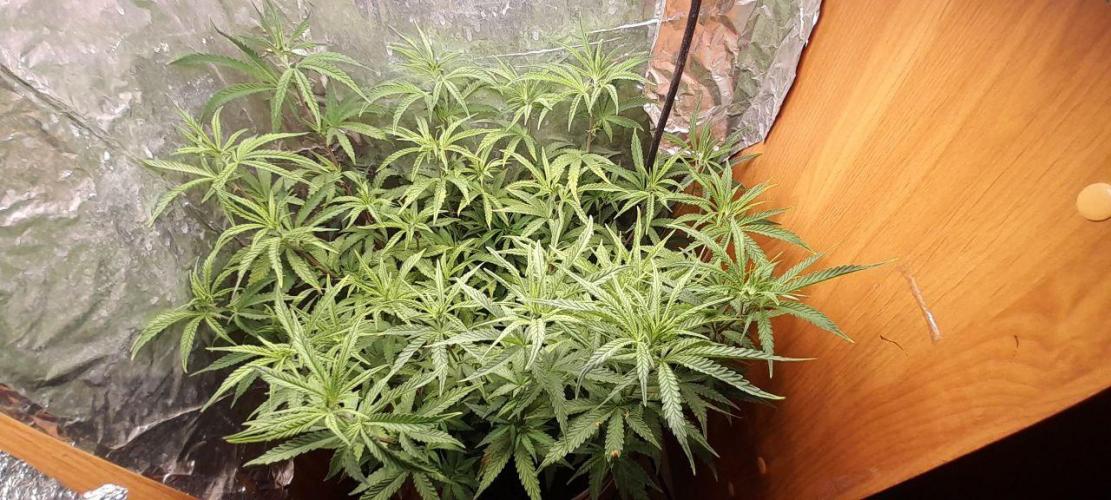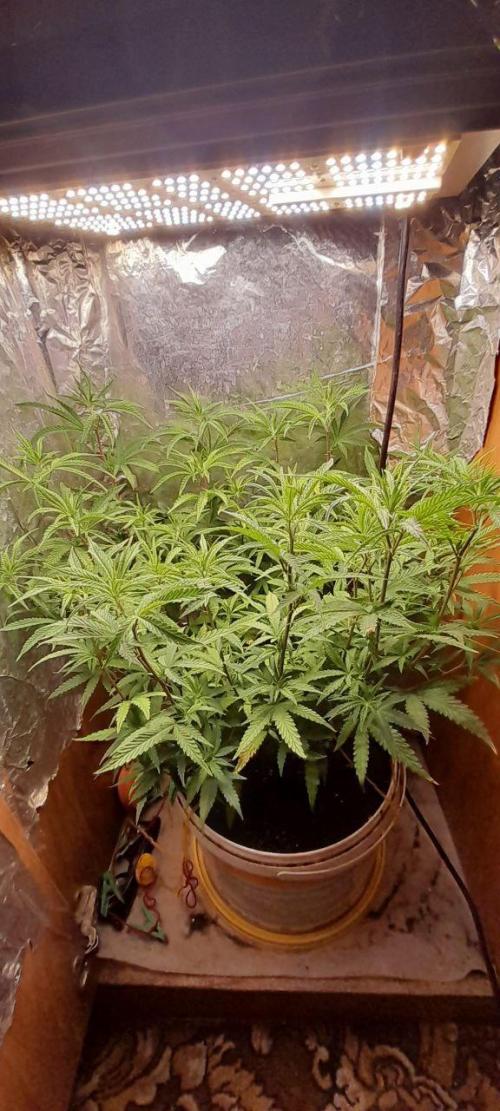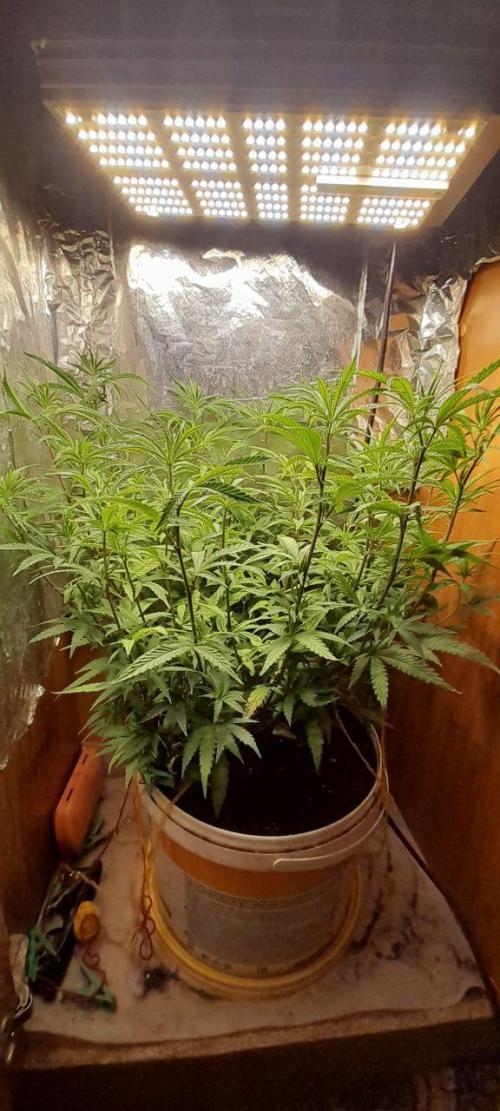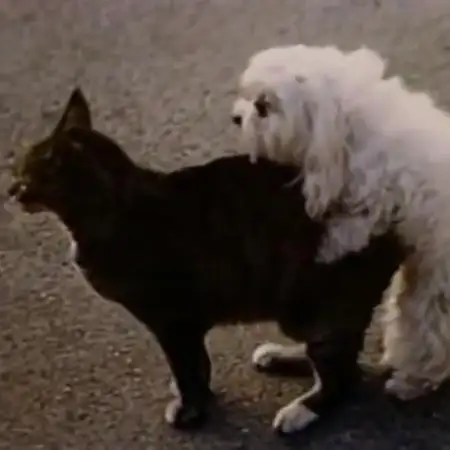The Grow Awards 2026 🏆
Question for Pro's about feeding
John_Kramerstarted grow question 5mo ago
Stealth grow with 5 weeks clone (Photo), 24h light
4th week - 2800 ppm per 3,7L
5th - 3500 ppm per 4.2L
i've fixed the P deficiency so in 2 days i'm gonna flip to 6h light and 18h dark
How should i feed it the next 2 weeks if my light hours lowered to 6h ?
Open
likes
Answer
Terpy_Burpzanswered grow question 5mo ago
Its looking good. Turn it turn 18hrs on 6 off. You shouldnt really give them any less than 12hrs at any stage but autoflowers prefer more light and you will find most "pro" gardeners do 18/6 or 20/4.
likes
Complain
Alikibassissianswered grow question 5mo ago
18/ 6 veg stage
12/12 flowering stage
Just Keep it simple is the easiest way
likes
Complain
00110001001001111Oanswered grow question 5mo ago
ppm is a concentration. it's 3500ppm in 1L or 1 gallon, regardless, not trying to be a dick. better to know than repeatedly type it that way, imo.
If giving the same DLI over 6 hours i'd feed it as you have or would normally do entering flower -- assumes the plant is not damaged by ~1800PPFD to reach 35-40 DLI over 6 hours, about which i have significant doubts.
Plants adapt to the level of light they receive per hour or per second (rate being key). It impacts concentration of chloroplasts in leaf surface etc... So a plant adapted to ~600ppfd over 18 hours isn't necessarily going to work well at ~1800ppfd over 6 hours. This is same cause to effect why an indoor plant taken outside often suffers in direct sunlight. I'm not certain it'll cause light damage, but it's at minimum borderline. When i lost power and moved a plant outside in direct sun... it wilted and had interveinal damage withink 3-4 hours, bwahah. Probably a bit more than 1800ppfd on the plant from all angles, top-to-bottom though and not just accross the canopy with artificial light.
If you are giving less DLI over 2 weeks, you should reduce your feed... start with a proportional change relative to change in DLI then observe and adjust. If giving 1/3rd DLI compared to before, i'd drop to 1/3rd dose of what you gave before. I would do this starting the irrigation before you start 6/18. Observe and adjust... next time you do it, it can be a smooth transition.
There's no need to go to 6/18. 12/12 is plenty for the hormone to build up and cause a response by the plant. Think of how quickly a re-vege can be caused... a few minutes of light is enough to flip the switch back to vege phase even 6 weeks deep into flower. The hormone levels clearly cause a nearly immediate reaction. Just one night it doesn't create enough, it re-veges. You don't realize it's in flower for nearly a week before your eyesight is good enough to discern something. It's in flower several days before you see a nub of a preflower with a scope. (that is simplified / watered-down -- preflowers can show up in an extended vege phase... conceptually communicates the idea, though... That there is a delay between biological processes changing and being detectable by human senses.) So, there's very little time to be saved, even if it does have an effect on transition to flower and lots of negatives related to drastic change in light intensity or depriving it of DLI, depending on the path you took. Lots of potential and likely negatives with minimal benefit possible.
Plus, anything that potentially shortens flower phase also will reduce yield. The plant isn't going to compensate growth rate.. if it finishes sooner than 'control group', it'll be a smaller plant. Not saying it will be shorter due to 6/18, but i am assuming that's the goal? quicker transition, faster flower? unless it also stimulates a faster growth rate (seemingly no cause for that effect), it inevitably has to result in a smaller yield, too. So, any time benefit is mitigated by a loss of productivity and averages out the same over time or less. There may be some contexts where it's a benefit in regard to logistics only, but it'd be very specific and limited situations.
Have fun experimenting if heart is set on it, but very unlikely to be a benefit based on existing knowledge base. you'd need to compare clones and accont for any seasonal differences.. easy to confuse growth rate changes, otherwise. too volatile if the temp, rh and co2 levels aren't tightly controlled.
The reduced dli for 2 weeks will definitely have a negative impact on results compared to 'control group,' though. That effect alone would be incredibly difficult to overcome for a net-positive.
1 like
Complain






